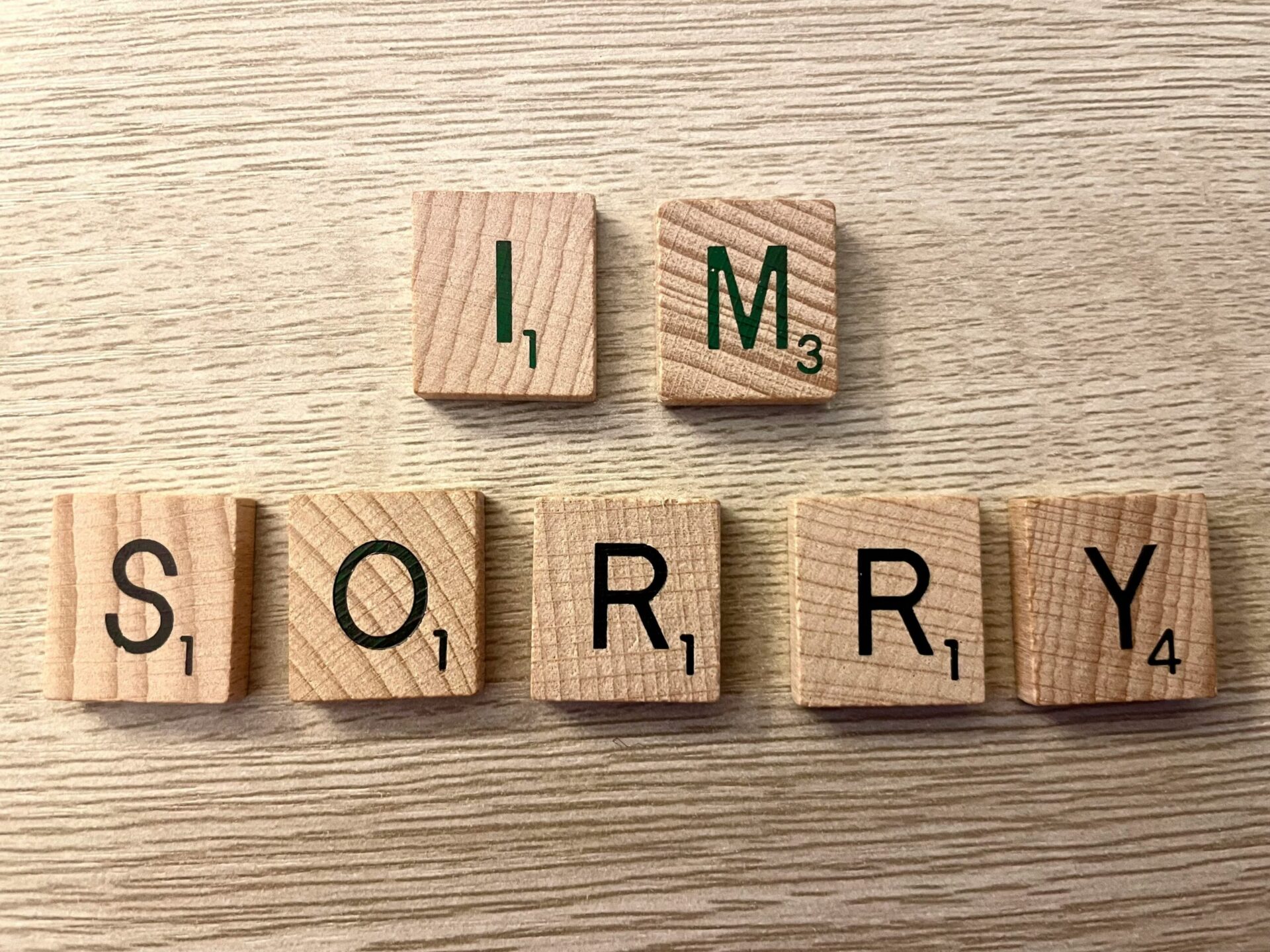You’ve taken the opportunity to say you’re sorry to your spouse after forgetting that important event of theirs, yet it almost seems to have made things worse. Having just made yourself vulnerable, you’re now also confused why trying to own your oversight has now caused an even bigger rupture. You know it’s a long life and you’re not perfect, and want more than anything to be able to effectively do something about when you’ve messed up and hurt someone you love.
If you look at today’s flower industry, offering good apologies has become a major business. You can choose from endless options of thoughtful apology notes to send to those we’ve hurt. This begs the question, how do we know what someone else needs to hear in order to feel like an apology is real?
Can You Speak the Language of Apologies?
We’ve likely heard of the 5 Love Languages of gifts, quality time, acts of service, words of affirmation, and physical touch from by Dr. Gary Chapman. But have you ever considered what your apology language might be? Take how the 5 love languages offer us a framework for how we give and receive love. Apologies are also expressed and received differently between people. The way we give and receive apologies can have a big impact on the quality and longevity of our relationships.
The 5 Apology Languages
We’ve all developed a sense for whether an apology is meaningful to us or not. This process for us typically forms out of our lived experience. This means that no two people have the same experience when it comes giving or getting an apology. Here are 5 common types needed in relationships.
1. Making Restitution
This form of apology is for someone that may never take simply hearing the words “I’m sorry” as a real apology. This person needs to hear you clearly explain how your actions had a negative impact; they need to know that you understand why your actions were wrong, unjust, or harmful. They also long to hear that you still love or appreciate them, even though you hurt them.
2. Expressing Regret
Sometimes, a simple “I’m sorry” is all that someone needs to feel a genuine apology. For this person, it gets right to the point. This apology is paired best with reflecting your remorse through body language. Depending on one’s culture, this might include gestures such as eye contact or a gentle touch while speaking.
3. Planning Change
Some people need your words paired with a clear action step to see that the hurt won’t be caused again in the future. However, change is hard, and doesn’t happen overnight. Taking small steps to change demonstrates a track record to others for lasting, effective change.
4. Accepting Responsibility
For many people, if the person apologizing can’t admit fault, then they won’t see the apology as genuine. This being said, it’s truly difficult for some people to admit they’ve made a mistake or have hurt someone else. If this may be the case for you, it might be worth considering whether admitting to a shortcoming is what your loved one needs to consider your apology.
5. Requesting Forgiveness
Some people feel an apology is effective if the person who caused them harm asks them for forgiveness. This is because requesting forgiveness cannot be demanded; it can only be offered by choice. As a result, asking for forgiveness is a vulnerable act that risks rejection. When someone chooses to ask another for forgiveness, just the willingness to ask may be enough for a person to regain trust in the other.

3 Steps to Effective Apologies
1. Uncover The Apology Needed
Webster’s Dictionary defines an apology as “an admission of error or discourtesy”, or “an expression of regret”. These are both apologies, yet they’re two very different things. As a result, we may give a genuine apology, but it isn’t the kind of apology that feels healing to the other person. For example, we can admit an error, yet the other person doesn’t believe we made a true apology. Likewise, expressing how poorly you feel about causing them pain will work for another person in the apology process.
2. Release the Outcome of Apologizing
Once understanding the diversity in how people determine what’s a real apology, it’s important to let go of the outcome. While providing the right apology is the first step towards reconciliation, even the best apology can’t determine that reconciliation between two people occurs. Each person in a relationship has a choice in deciding whether they wish to restore what’s been broken. Consequently, making peace with the idea that an apology doesn’t always mean reconciliation will help you to adjust your expectations. In this way, we can experience greater freedom in life by knowing that it is always possible to offer a true apology, even if we don’t have full control over the outcome.
3. Know Your Own Apology Needs
An important part of knowing how to apologize to others is to understand what kind of apology we ourselves need to feel we can continue to experience trust in the relationship. Here are some practical exercises to help you master the art of apologizing.
Reflect on Past Apologies
One helpful way to increase our mastery of apologies is journalling about the best or worst apology you’ve ever received. How did this apology make you feel? Did you really like that they showed you their feelings of regret for what they caused? Or maybe they instead asked you what they could do immediately to make it better? Alternatively, consider how someone in our past offered an apology that added to the hurt instead of alleviating it. Once we understand our own needs in an apology, it becomes easier to provide more sincere and effective apologies to others in our lives.
Discover the Apology Language of Those in Your Life
Just as writing about your own experiences with apologizing can help you to understand the apology process, so can asking the people you’re closest to about their experiences. This doesn’t have to be in a moment of conflict. Actually it works great to learn these important details about your friends and family in periods of peace and positive relating. Try finding a moment over coffee or during your next outing to ask your loved ones about their definition of a good apology.
Reach Out
Connect with someone who can support you in understanding your unique relational patterns with work, friends, and family. I help people strengthen their relationships so they can lead lives of greater safety and freedom.

